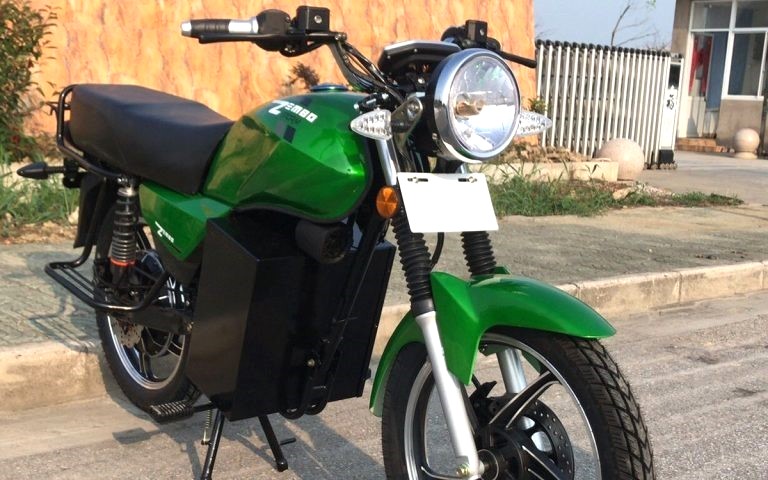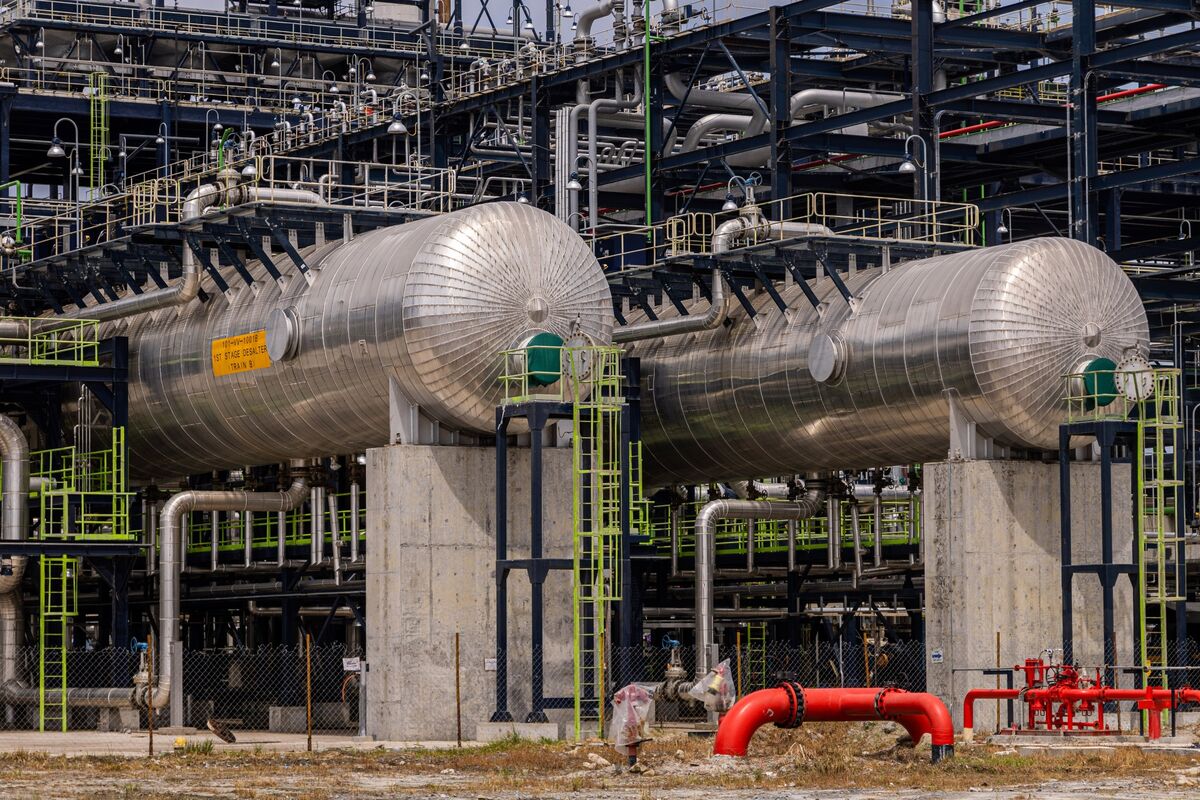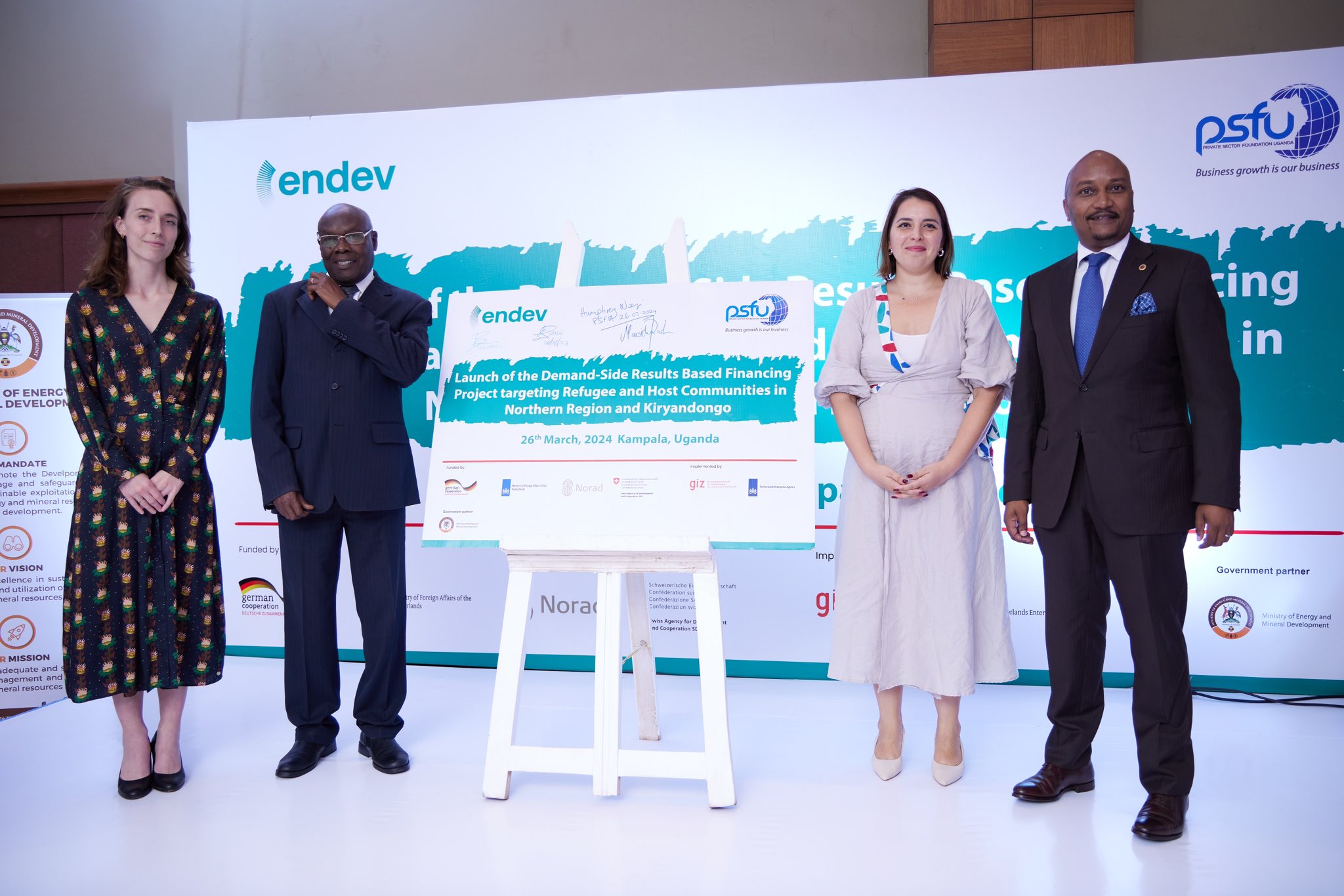Spiro unveils UGX3.8 million electric motorcycle

HI-TECH: President Yoweri Museveni (in army uniform), inspects one of the state-of-the-art electric cycles at Kyankwanzi yesterday.
Spiro, a leading electric motorbike manufacturer and clean energy provider in Africa, has launched its electric motorcycles on the Ugandan market.
The company, whose mission is to replace petrol-powered vehicles with affordable electric alternatives, unveiled their state-of-the-art machines to President Yoweri Museveni at Kyankwanzi yesterday.
With its headquarters in Mombasa, Kenya, the company is said to have the largest electric two-wheeler fleet in Africa with over 15,000 bikes deployed in both West Africa and East Africa.
- A press release from State House said the delegation from Spiro was led by Odrek Rwabwogo, the chairperson of the Presidential Advisory Committee on Exports and Industrial Development (PACEID).
President Museveni commended Spiro for the new technology, stating that, “This is good news. The electric bikes are better than our traditional ones which require [petrol],” stressing Uganda’s dedication to adopting environmentally friendly alternatives.
Officials informed the President that 500 of their electric bikes are already operational in Kampala, with 150 of them sold in the first week. “The price of an electric bike is $1,000 (about UGX3.8 million), which is significantly cheaper than the traditional diesel-powered bodas, which cost $1,480. This is about 30% cheaper,” said Rosa Malango, the Chairperson of the Tumaini Africa Knowledge Centre (TAKC).
- The bikes also have a battery range of approximately 80 kilometres and come with convenient charging stations across Kampala and Ugandans have welcomed the new technology and are quickly adapting to it, according to Malango.

“Each bike and battery is equipped with a GPS tracker and a specific identification number, enhancing security and enabling efficient tracking in case of accidents or crimes,” she added.
Gaurav Anand, head of Spiro in Uganda, said they have plans to partner with the Ugandan government to deploy over 140,000 electric two-wheelers and 3,000 charge-and-swap stations across the country by 2028.
He said Spiro expects to have about 35 battery-swapping stations in Kampala by the end of the year, noting that the company is set to revolutionise Uganda’s transportation landscape. “The company also plans to launch electric tuk-tuks next year, further expanding its impact,” he noted.
“We are pleased to bring the latest technology and products to the country. Each bike is equipped with a GPS tracker, allowing us to work with enforcement agencies to enhance security. We look forward to continued cooperation with the Ugandan government in various sectors, including the cotton industry and beef value-addition.”
- He also expressed the company’s interest in establishing a textile factory in Northern Uganda, specifically in Lira District. “This factory will focus on ginning, weaving, knitting, and spinning cotton, thus contributing to Uganda’s industrial development,” he said.
- Founded in 2022, Spiro has revolutionized urban travel, offsetting over 6,500 tons of CO2 emissions annually, amid global anxiety about climate change, which is forcing countries to embark on energy transition measures.
Experts say that shifting to green energy sources can substantially mitigate the devastating effects of climate change. Spiro motorcycles have therefore been embraced across the continent, and the company has entered partnerships with several companies, including asset financing as well as transport companies such as Mogo to scale up the affordability and accessibility of its motorcycles.
Company officials said that with collaborative efforts and technological advancements, Spiro, formerly M-Auto, is not merely envisioning a greener future for Africa but also actively working towards making it a reality.



.jpg)


































